Garbage Time of America, and a Personal Long Vacation
What if the ROI of my effort is underwater?
I’m on vacation. This is a vacation post.

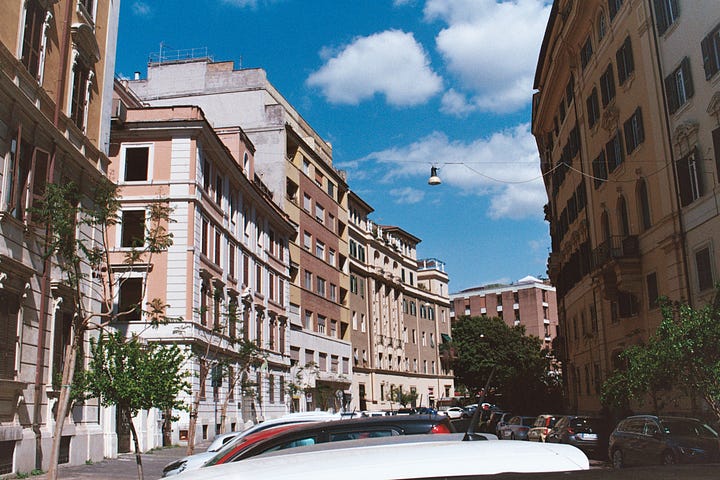

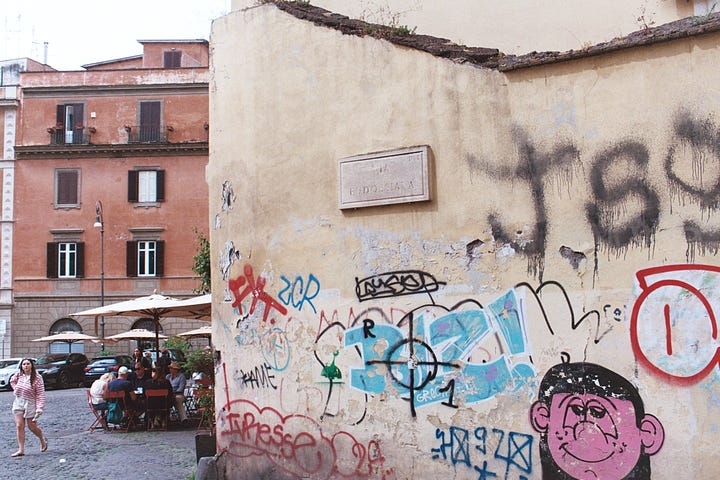
I’ve started reading history books. Most recently, I finished Alexei Yurchak’s Everything Was Forever, Until It Was No More, an on-the-ground view of what life was like for young people—teenagers, young adults, the Last Soviet Generation—during the ‘60s, ‘70s, and early ‘80s of Soviet Russia.1 During that era, the Soviet Union was still a repressive planned economy, but there was enough wiggle room, enough sclerosis in that apparatus of repression, that there was room for individuality. An artsy intellectual twenty-something2 could take some low-stress job, spend his limited wages on heady rock concerts, read French poetry in coffee shops, go hiking in Siberia, and fill his apartment with Western memorabilia and bootleg Uriah Heep tapes. There were stilyagi dressing in wacky clothes, musicians making a show of not knowing who was in the Central Committee, hooligans playing practical jokes on Army officers, and bosses sharing anekdoty анекдоты with the rest of the office:
In the early eighties, a man was approaching Red Square during the funeral of yet another Politburo member. Because attendance at these funerals was restricted to important party members with invitation passes, the man was stopped by a policeman.
“Do you have a pass?”
“I have a season ticket.”
In the moment, it felt like—despite everything—the Soviet Union might last forever. Some felt that even under all the paperwork and block-quote speechwriting, Communism might yet win. But in hindsight, many found they weren’t truly surprised to see the USSR collapse.
Historian Hu Wenhui would describe this era, roughly aligning with the increasingly gerontocratic tenure of Leonid Brezhnev, as a garbage time for the Soviet Union. They had—in important ways—already lost to the West, especially after taking such a convincing black eye in Afghanistan.3 Hu does not elaborate on why he considers the 2020s in China to be another garbage time, but he turns to history to ask what one must do in such an era. Chinese history, luckily, offers many examples of garbage time to analyze.
But Hu starts with a Confucius line:
The Master said: “Hold firm to your faith, and love learning. Guard the Way with your life. Do not enter a dangerous state. Do not stay in a chaotic one. When the Way prevails in the world, show yourself. When it does not, hide. If a state has the Way, it is shameful to be poor and lowly. If a state does not have the Way, it is shameful to be rich and noble.” 子曰笃信好学守死善道危邦不入乱邦不居天下有道则见无道则隐邦有道贫且贱焉耻也邦无道富且贵焉耻也 [Analects 8.13. Emphasis mine.]
American Compliance
I don’t think kyla scanlon would describe the 2020s in the United States as a garbage time, but she does lament a parallel malaise, which she frames as compliance, both among young people like me and among politicians.
Students don’t trust that curiosity will pay off. They trust that optimization will— which is completely understandable. The result is a generation of workers trained to anticipate what’s expected, not to invent what’s needed. I did the same thing.
…That’s also how most political careers function. Intuit what the power brokers want. Rehearse the right message. Vote accordingly. Diverge, and you’ll be kicked off committees or primaried out of existence.
…The common thread? A system that punishes risk-taking while rewarding conformity.4
Scanlon advocates an inverse response: don’t comply, think. Don’t optimize for the current rules, dare to lead something new. It’s a very “kids these days” polemic, but Scanlon is my age. I know exactly what she’s talking about. I’m living it too.
But I’ve learned that stepping up, taking ownership, and making earnest mistakes leads to punishment: Performance Improvement Plans (PIPs), rebuke from leadership, “cancellation” on social media, lost friends.5 And what rewards, short of personal growth, have such endeavors presented upon me? Wisdom and individuation convert poorly into USD. A wellspring of compelling conversation has not improved my dating outcomes. And original thinking is of unclear value in a still-ossified industry.
I know, “Welcome to Whining Hour with F. Ichiro Gifford.” I’ll accept a wide variety of indictments of my character,6 but I will not accept “he didn’t try hard enough.” I tried so hard my joints started to unglue. I read so many self-help books that it veered into self-harm. And in return for scorching my nerves and poisoning my soul, I’ve earned a cushy 1-bed apartment, a handful of true friends, and a build best described as “pretty athletic for a fat guy.” I get the persistent sense that I’m waiting for my betters to retire and for someone of the fairer disposition to lower her standards. Could be worse—I’m well-hidden from the current socioeconomic turmoil.
Because the Way is not prevailing.
Listen, I like writing this blog—and I’ve already committed to maintaining it through 2025. But the expected three-year return of this project is negative. It’s more likely to get me fired than to advance my mainline career. Even if I monetized it, I’ll likely need three years of slam-dunk poasting for the income to match my current paycheck. Even if I leveraged it into a job in DC, there are good odds I get the Dan Caldwell treatment, escorted out of the office because I voiced inconvenient opinions.7
I’ve been running the risk-reward analyses on my life. I could resume taking ownership at work and doing more than I’ve been told. But nowadays, I get more gratification out of Saturday mornings on my bike, Sunday afternoons with a book and a coffee, and weeknights on the phone with friends. It’s lower-risk and higher-reward.
So why not hide?

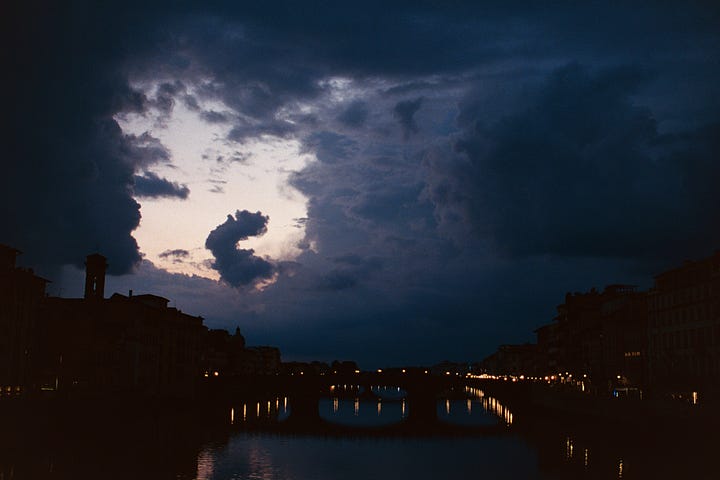
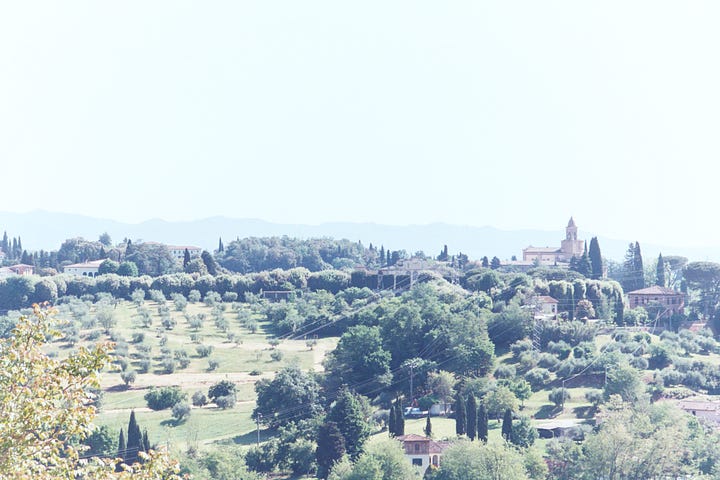
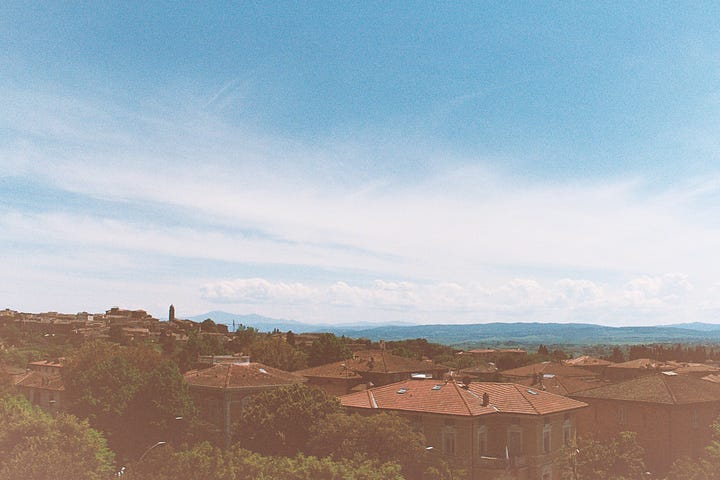
Failed Heroism & The Preconditions of Civilization
I read Neil Howe’s The Fourth Turning is Here soon after its 2022 release. On a reread, I’m impressed at how anachronistic it already feels. Howe suggests that if things go well enough in some 2030s reconstruction:
America and its allies will likely heed Ukraine President Zelensky’s bold plea back in 2022. They will create “new alliances” and “new institutions” to guarantee collective security, perhaps by means of unprecedented powers of intrusive enforcement.
Already in 2025, the concept of the United States having future allies feels tenuous, as we instead slide into a world of spheres of influence and self-imposed economic decline. That said, Howe was prescient enough to offer some low-case projections for the United States as a “damaged and diminished nation…drastically degraded in its political constitution.” This projection of a world with undermined global trade rules, less-protected air and sea lanes, and weakened security for democracies around the world feels more true to life.
Howe’s account of Millennials, which he stretches to include most of Gen Z, follows the same trajectory: only the low-case projection seems true in 2025. We have made great attempts to be “career ready,” to follow the rules, to seek safety in numbers and credentials. But are the young adults of the Millennial Crisis really up to the challenge Howe thinks we must face? Are we collectively willing to sacrifice for a greater good? Are we capable enough to build a better nation? Howe wants to call me, call my age cohort, a Hero. He compares me to the men who stormed Peleliu, but does anyone think a hot war with China will motivate the doomer generation to get off our phones? Are we good for anything beyond terrified compliance?
Fellow Zoomer Isaac Wilks is on Scanlon’s side here. He doesn’t think we’re up for a revolution. He doesn’t think we have the demographic strength of character even to manage in-the-flesh politics. He, too, likens our age cohort to the Last Soviet Generation of Brezhnev’s Russia, “numbed and deadened into stability.” Wilks thinks the best the Zoomer generation can do—if we really reach for it—is to “recover the possibility of human development.” Just the possibility, the preconditions of what may become a new society. The fruits of that development are for our children, for those of us who even have them.
Sounds like more garbage time. At that rate, you might as well call us the Last American Generation. In such a world, is it so shameful to be poor and lowly?
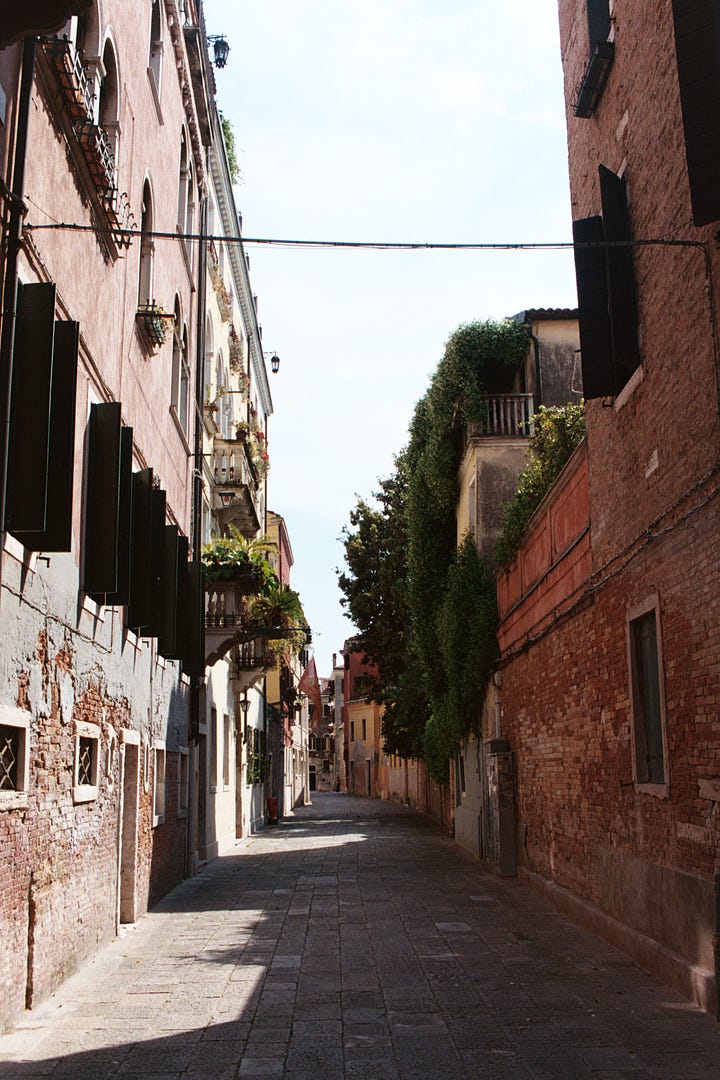
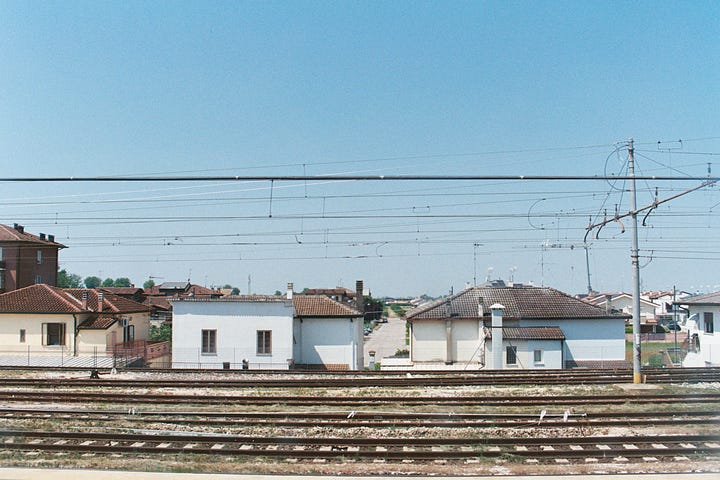

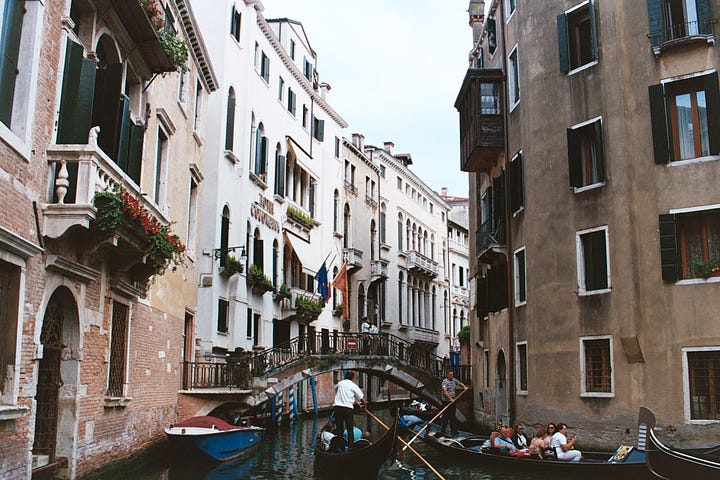
A Long Vacation
Hu Wenhui provides some color to what “hiding” looks like. His core example is the 1996 Japanese TV show Long Vacation ロングバケーション, but that ends with a happily-ever-after in Boston—out of my budget and out of my league. The end of the Tang Dynasty offers better options: between Luo Yin, Pi Rixiu, and Lu Guimeng, a corpus of essays shone bright enough to survive a millennium. Even as the political world darkened, sliding into an era of fractured kingdoms, the literature flourished. It was the slackers’ romance of Sena Hidetoshi and Hayama Minami stretched over generations, a cultural long vacation for a collectively broke and adrift civilization, a chance to name “the emotions of a thousand autumns,” to rip a phrase from a different era.
I’ve already written about how this phenomenon is playing out in China, by way of an emo-rock album. The post-90s and post-00s cohorts in China are cooked, too. But the more tired I feel, the more I ask if I, too, would prefer the snow and the flowers over working so hard. Maybe 2025 is the last year that I put effort into. Maybe after I finish my commitments to grad school, to this blog, I simply…give up. Grieve for my ambitions. Forsake hope of a family. Tell my parents I failed. Live vnye, meeting the bare minimum of compliance with a declining nation, diverting the rest of my effort towards private aesthetic projects, checking back in ten years to see if the Way has returned—or if some institution, desperate for leadership, has scraped my name out the bottom of a barrel.
Increasingly, I consider going on my own long vacation.
But then I ask who would tell the truth in my stead.
And I return to the poasting machine.
This post and the information presented are intended for informational purposes only. The views expressed herein are the author’s alone and do not reflect those of their current or previous employers or any elected officials. The author makes no recommendations toward any electric utility, regulatory body, or other organization. While certain information contained herein has been obtained from sources believed to be reliable, the author has not independently verified this information, and its accuracy and completeness cannot be guaranteed. Accordingly, no representation or warranty, express or implied, is made as to, and no reliance should be placed on, the fairness, accuracy, timeliness or completeness of this information. The author assumes no liability for this information and no obligation to update the information or analysis contained herein in the future.
Next up is Susanne Schattenberg’s biography of Leonid Brezhnev.
like me
If you have a recommendation on a good book on the Soviet Afghanistan campaign, please tell me.
Scanlon also describes a mirror affliction—extreme risk aversion for some, reckless risk-taking for others. That extreme risk-taking may look like crypto speculation, or like dropping everything for an AI startup.
I have a personal experience of each of these.
I’ll even offer suggestions: arrogant, abstruse, distractible, careless, irony-poisoned, overbearing, too fond of ten-dollar words, too proud to accept someone else’s leadership.


